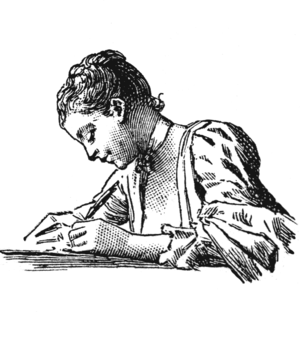
Today’s installment of our 500th Reformation anniversary (from desiringgod.org) is about that pioneering woman.
Marie Dentière
c. 1495–1561
The First Lady in France
By Adrien Segal
Born in 1495 to a noble family in Tournai, France, Marie Dentière was well educated, entered an Augustinian convent (which was Luther’s order), and likely served as a prioress in the early 1520s. Captivated by Martin Luther’s breakthrough theology, Marie left the convent by 1525 and moved to Strasbourg to officially join the highly charged Reformation movement. In that same year, she made a second radical move when she married a former priest, Simon Robert.

Renouncing clerical celibacy and extolling the joys of marriage from Scripture became strong themes in Marie’s ministry, especially in her controversial attempts to convert nuns in Geneva. One Reformer writes that Marie and Simon Robert “were the first French married couple to accept a pastoral assignment for the Reformed Church.” The couple had five children, but Robert died in 1533. By 1535, Marie had married Antoine Froment, another Reformed pastor, and the family moved to Geneva.
Live from Geneva
Most of what we know of Dentière, which is not a great deal, is gleaned from three documents attributed to her. The first of the written works recounts the events of 1532–1536 in Geneva from the point of view of the Reformers. Dentière may have been the first Protestant writer to give an eyewitness account of that tumultuous time, and she was among the first women, if not the first, to articulate and defend Reformed theology in French.
But far more than a historian, Marie Dentière was an articulate (if inflammatory) evangelist. She loved and revered the Bible, was distressed that the Catholic Church had withheld so much of it from the people, and preached that every person, including women, should be able to read God’s precious and glorious words for themselves.
A Reformed Female Teacher?
Dentière’s most famous and controversial work was a letter to the Queen of Navarre, entitled “A Most Beneficial Letter.” The letter is a robust biblical defense of Reformed theology and an impassioned attack on the Catholic Church.
It is an energetic and engaging work that demonstrates extraordinary biblical knowledge and theological understanding. The public unrest it caused resulted in the arrest of the printer and the destruction of most of the printed copies of the work. Not only had her letter condemned Roman Catholicism, and not only was her letter written by a woman, but Dentière also defended women’s equal right to be theologians and teachers. She writes,
For what God has given you and revealed to us women, no more than men should we hide it and bury it in the earth. And even though we are not permitted to preach in public congregations and churches, we are not forbidden to write and admonish one another in all charity. (Epistle to Marguerite de Navarre, 53)
Calvin and Marie
Though Marie strongly supported and defended Reformed leaders, including John Calvin, Calvin was clearly annoyed, at least during the early years of her ministry, by her outspoken manner, theological ambitions, and open criticism of male clerical leadership.
However, by 1561, the year Marie died, tension between the two had subsided and Calvin’s respect and appreciation for Marie had manifestly grown. He even asked her to write the preface for his printed sermon on female modesty from 1 Timothy 2:8–12. Perhaps ironically, one could argue that Calvin asked her to teach about a biblical passage that expressly forbade her to do so.
One Woman on the Wall
For Marie Dentière, the astonishing news of saving grace and the powerful message of equality before God were truths that had been suppressed by the Catholic Church and needed to be shouted from the housetops by anyone who had seen them for themselves in God’s word.
There is no question she lacked what those of the time considered appropriate feminine modesty and humility, but because her passion was kindled by the pages of Scripture, her writing stirred and changed hearts not only in her own day, but in ours today, as well. In 2002, Marie Dentière became the only woman to have her name engraved on the famous Wall of Reformers in Geneva.
Recent Comments